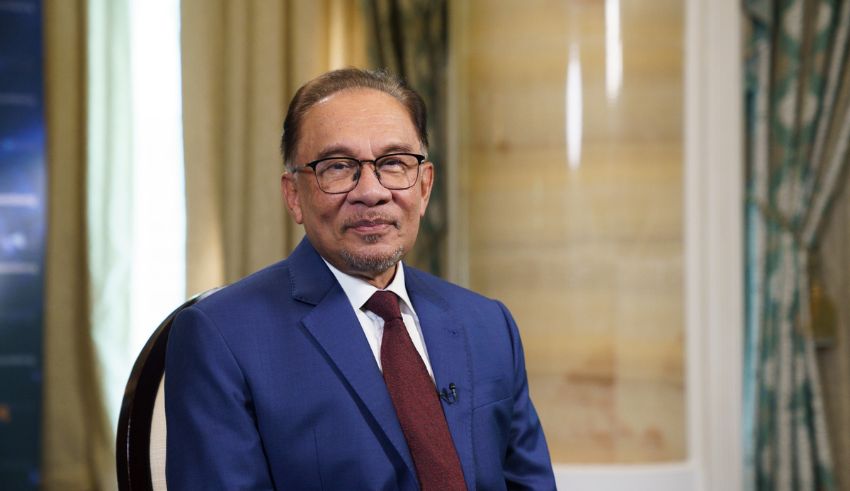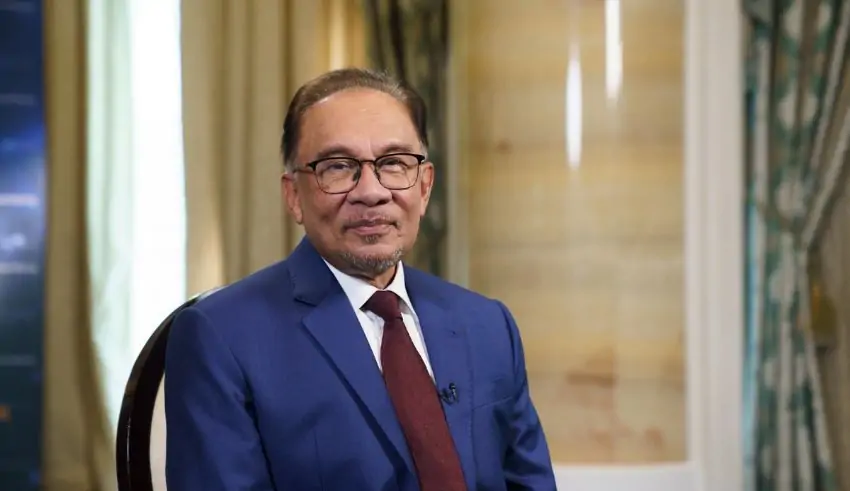

(C) Bloomberg.com
Anwar Ibrahim, the prime minister of Malaysia since January 2023, faced a new challenge to his leadership in December 2023, when an alleged plot to oust him from power surfaced in the media.
The plot, dubbed as the “Dubai Move”, involved a secret meeting between some opposition leaders and influential individuals in Dubai, the capital of the United Arab Emirates, during their holiday. The purpose of the meeting was to gather enough support from members of parliament to withdraw their confidence in Anwar and to form a new government with a different coalition.
The main players behind the “Dubai Move” were reportedly from the Perikatan Nasional (PN) coalition, which comprises the Islamist party PAS, the nationalist party Bersatu, and some defectors from the former ruling party Umno. The PN coalition was the main rival of Anwar’s unity government, which was formed after the 2022 general election, and which consisted of the reformist party PKR, the Malay-based party Umno, and the multiracial party DAP.
The PN coalition had been trying to topple Anwar’s government since its inception, by exploiting the divisions and discontent within the unity government, especially among the Umno MPs who were unhappy with Anwar’s leadership and policies.
The other players involved in the “Dubai Move” were allegedly some influential individuals, such as a former prime minister and a former finance minister, who had connections and interests in the UAE.
The former prime minister was speculated to be Mahathir Mohamad, Anwar’s former mentor turned nemesis, who had resigned as the prime minister in February 2020, triggering a political crisis that led to the collapse of the Pakatan Harapan (PH) coalition that he and Anwar had led to victory in the 2018 general election. The former finance minister was speculated to be Daim Zainuddin, Mahathir’s close ally and adviser, who had been facing corruption investigations by Anwar’s government.
The “Dubai Move” failed to materialize, as Anwar managed to secure the support of more than two-thirds of the MPs in the parliament, making it impossible for the opposition to muster enough numbers to overthrow him.
Anwar also received the backing of the king, Sultan Abdullah Sultan Ahmad Shah, who had appointed him as the prime minister after the 2022 general election, and who had rejected the opposition’s attempts to persuade him to dissolve the parliament or to appoint a new prime minister. Anwar also dismissed the “Dubai Move” as a non-issue, and said that he was focused on his work and agenda for the people.
The “Dubai Move” had a significant impact on Anwar’s political agenda and allies, as it revealed the challenges and opportunities that he faced as the prime minister of a diverse and divided nation. On one hand, the “Dubai Move” exposed the fragility and vulnerability of Anwar’s unity government, which was constantly under threat from the opposition and from within.
Anwar had to deal with the dissatisfaction and demands of his allies, especially Umno, which had the largest number of MPs in his coalition, and which had been pressuring him to give them more power and privileges, such as cabinet positions, government contracts, and legal immunity. Anwar also had to balance the interests and expectations of his supporters, especially the non-Malays and the urbanites, who had voted for him for his reformist and progressive agenda, and who had been disappointed by his compromises and concessions to his conservative and rural allies.
On the other hand, the “Dubai Move” also strengthened and validated Anwar’s leadership and legitimacy, as he proved his ability and resilience to overcome the political crisis and to maintain his grip on power. Anwar also demonstrated his vision and direction for the country, as he launched several initiatives and policies to address the economic and social issues that the people faced, such as the COVID-19 pandemic, the poverty and inequality, and the corruption and mismanagement.
Anwar also reaffirmed his commitment and aspiration to transform Malaysia into a “New Malaysia“, which is based on justice, democracy, and human rights, and which aims to create a prosperous, harmonious, and progressive nation.
30-year-old Lucy Guo has now made it into the record books because she has been the youngest self-made woman billionaire…
Big leaps into the internet technology future kicked off with the launch of the world’s first commercial network for selling…
The Singapore Exchange (SGX) plans to introduce Bitcoin perpetual futures trading capabilities which will become available during the second half…
Alicia Wong Lingling, 19 years old from Selangor’s Klang has officially entered history books as Malaysia’s first-ever female K-pop idol.…
Singaporean Netflix subscribers are paying more each month as the streaming giant introduces its latest price hike. From April 2025,…
K-pop being a big deal for SEVENTEEN, they're set forth in some serious celebration to mark a 10-year-long feat. This…
This website uses cookies.
Read More